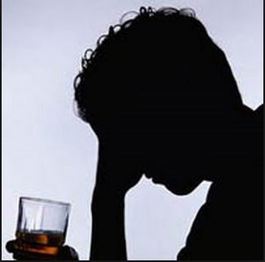
How do you know your addiction rehab clinic will help with your other issues? You don't. And they won't.
When a client seeks treatment, an ethical addiction clinic will ask questions re underlying issues, not solely for the purpose of creating a care plan and possible aftercare options, but to ensure issues that are related to the addiction, but are not the addiction, will be addressed sufficiently.
To admit a client with clear underlying issues that will knowingly not be addressed or have no provisioning for care in place, is unethical at best.
If the underlying issues that aren't addiction, but do contribute to addiction, are not provided for, they will slowly increase the likelihood of relapse, ten-fold.
Are you looking to book treatment with a clinic that operates like this? Fast detox, provided for minimum cost?
Cheap treatment is not necessarily good for your long term health or bank balance.
Let's illustrate by comparing a few examples:
1) Client seeks addiction treatment and has back pain unrelated to addiction
2) Client seeks addiction treatment and has back pain that was original driver of addictive behaviours
3) Client seeks addiction treatment and has no back pain but does have PTSD, possibly related to addictive behaviours.
Now - what risk of relapse does each client present, following successful detox and rehab?
Client #1 is clear cut, and to the clinicians involved, represents less underlying risk following detox and rehab. This may be because the back pain is clearly unrelated, is very mild and does not require medication, or is a result of a passing accident that will self-heal in time.
But in any case, because there is sufficient information at the point of admission that the physical issues are unrelated to the pattern of addiction, and did not contribute to it starting, there is (probably) considerably less risk of relapse, all other things being equal.
Client #2 represents much greater risk, and we must ensure sufficient aftercare planning is in place for this client, before we even consider admission to a clinic. We have information that the physical issue that lay underneath the original addiction is still not resolved, and yet the client seeks detox and wants to resolve the addictive behaviour that sits on top of a physical malady that has not been properly addressed.
Successful treatment here will involve careful consideration of aftercare planning for the client to address the back pain directly and consistently, until resolved.
Importantly this means ensuring the individual is emotionally prepared to take full responsibility for this, and all its ramifications and complications, and to stay sober whilst recovering from the back pain issue.
Client #3 is especially complex. A common question here is - will the rehab treat PTSD as well as addiction?
The answer is No.
Again, the individual concerned must accept full responsibility for the underlying affliction, be it physical or emotional. The only difference is that with emotional underpinnings or complex mental health issues, the elements contributing to a pattern of addiction .v. those that are not become more difficult to identify.
But ultimately again we must make sure that sufficient resources and support are in place for the individual to tackle and resolve the issues of PTSD or other emotional ailments, long after they leave the clinic behind, and in a way that also supports their long term sobriety.
Does this make it clearer?
Addiction treatment in a clinic, is just that, it doesn't address or attempt to work with any other ailments or condition, physical or otherwise.
Many folks at the stage of feeling ready to address their addiction want help, and fast....but this approach doesn't always lead to long term results. Make some clear distinctions about addiction treatment, and what it is, before deciding on the right clinic for you.
The truth is that most clinics don't have anywhere near these levels of insight or fine distinctions in admitting clients to know the difference.
Do you know the right questions to ask? Would you select the correct clinic yourself?
Our help and advice is free, and we advise on low cost options as well as full service clinics, in and around Peterborough. We know the nuances to help you find the right clinic.
Help is available now, by calling us on 01733 530 417. What happens next is up to you.
When a client seeks treatment, an ethical addiction clinic will ask questions re underlying issues, not solely for the purpose of creating a care plan and possible aftercare options, but to ensure issues that are related to the addiction, but are not the addiction, will be addressed sufficiently.
To admit a client with clear underlying issues that will knowingly not be addressed or have no provisioning for care in place, is unethical at best.
If the underlying issues that aren't addiction, but do contribute to addiction, are not provided for, they will slowly increase the likelihood of relapse, ten-fold.
Are you looking to book treatment with a clinic that operates like this? Fast detox, provided for minimum cost?
Cheap treatment is not necessarily good for your long term health or bank balance.
Let's illustrate by comparing a few examples:
1) Client seeks addiction treatment and has back pain unrelated to addiction
2) Client seeks addiction treatment and has back pain that was original driver of addictive behaviours
3) Client seeks addiction treatment and has no back pain but does have PTSD, possibly related to addictive behaviours.
Now - what risk of relapse does each client present, following successful detox and rehab?
Client #1 is clear cut, and to the clinicians involved, represents less underlying risk following detox and rehab. This may be because the back pain is clearly unrelated, is very mild and does not require medication, or is a result of a passing accident that will self-heal in time.
But in any case, because there is sufficient information at the point of admission that the physical issues are unrelated to the pattern of addiction, and did not contribute to it starting, there is (probably) considerably less risk of relapse, all other things being equal.
Client #2 represents much greater risk, and we must ensure sufficient aftercare planning is in place for this client, before we even consider admission to a clinic. We have information that the physical issue that lay underneath the original addiction is still not resolved, and yet the client seeks detox and wants to resolve the addictive behaviour that sits on top of a physical malady that has not been properly addressed.
Successful treatment here will involve careful consideration of aftercare planning for the client to address the back pain directly and consistently, until resolved.
Importantly this means ensuring the individual is emotionally prepared to take full responsibility for this, and all its ramifications and complications, and to stay sober whilst recovering from the back pain issue.
Client #3 is especially complex. A common question here is - will the rehab treat PTSD as well as addiction?
The answer is No.
Again, the individual concerned must accept full responsibility for the underlying affliction, be it physical or emotional. The only difference is that with emotional underpinnings or complex mental health issues, the elements contributing to a pattern of addiction .v. those that are not become more difficult to identify.
But ultimately again we must make sure that sufficient resources and support are in place for the individual to tackle and resolve the issues of PTSD or other emotional ailments, long after they leave the clinic behind, and in a way that also supports their long term sobriety.
Does this make it clearer?
Addiction treatment in a clinic, is just that, it doesn't address or attempt to work with any other ailments or condition, physical or otherwise.
Many folks at the stage of feeling ready to address their addiction want help, and fast....but this approach doesn't always lead to long term results. Make some clear distinctions about addiction treatment, and what it is, before deciding on the right clinic for you.
The truth is that most clinics don't have anywhere near these levels of insight or fine distinctions in admitting clients to know the difference.
Do you know the right questions to ask? Would you select the correct clinic yourself?
Our help and advice is free, and we advise on low cost options as well as full service clinics, in and around Peterborough. We know the nuances to help you find the right clinic.
Help is available now, by calling us on 01733 530 417. What happens next is up to you.




 RSS Feed
RSS Feed
